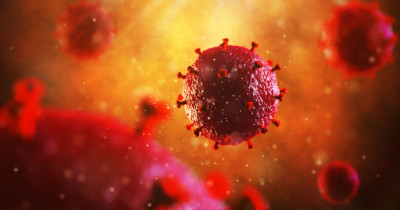In this section

Stages of HIV infection
If untreated, people living with HIV progress from having no symptoms to developing illness and eventually late-stage HIV (also known as AIDS). Read more about Stages of HIV infection
Symptoms of HIV
People with HIV may have a short flu-like illness soon after getting the virus, but can then feel well for a long time. Most people will only notice further symptoms of HIV after a few years. Read more about Symptoms of HIV
Myths about HIV
Common misconceptions about HIV that can stop people from getting tested, from accessing treatment and from living well with HIV. Read more about Myths about HIV
How HIV is transmitted
HIV is passed on through blood, semen, vaginal fluid, anal mucus and breast milk, if the person with HIV has a detectable viral load. It’s not passed on by spitting, sneezing or coughing. Read more about How HIV is transmitted
Viral load and being undetectable
Medical evidence has shown that people on effective HIV treatment can’t pass HIV on. Read more about Viral load and being undetectable

